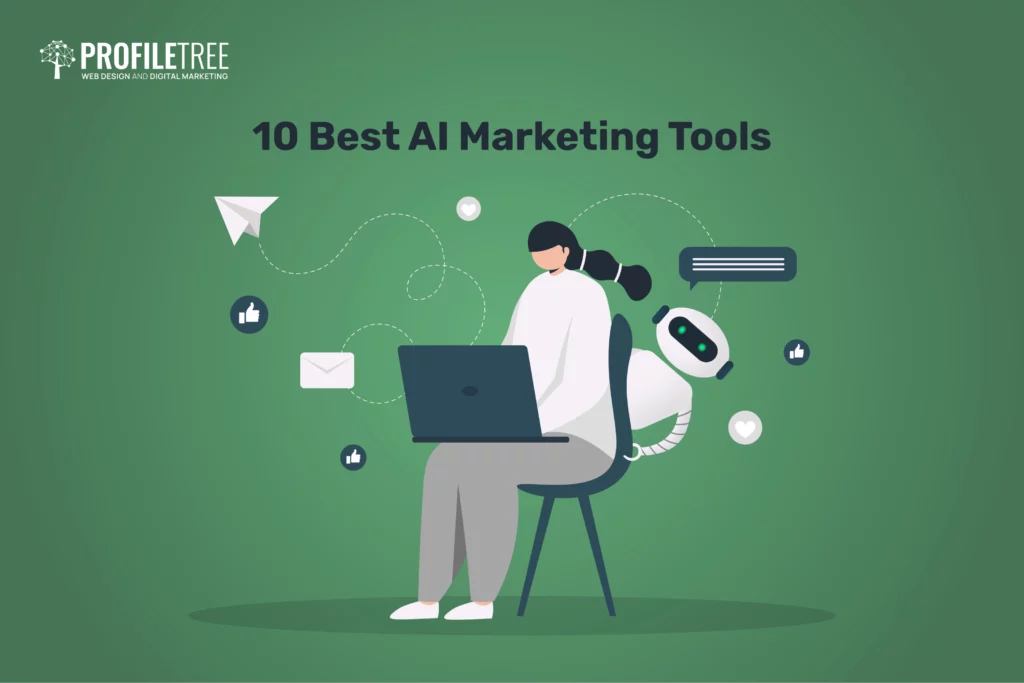If you’re considering hiring a marketing person for your business, we have some very blunt advice you won’t hear anywhere else.
Why? We’re a professional content marketing agency with a multi-discipline team, many of whom started their careers as in-house marketers. We also work with small businesses daily.
In short, we know how to help businesses just like yours reach their marketing goals. It’s what we do. Of course, we also have a horse in this race. That is, companies work with agencies like us as an alternative to bringing their marketing efforts in-house.
With that in mind, let’s think about a very basic question.
Table of Contents
When Should You Hire a Marketing Person?
The key here is deciding when hiring an in-house marketer will be more cost-effective than engaging an agency. This is often a messy calculation. There’s no doubt that, hour for hour, an agency will cost more than your new marketing person’s raw salary.

But in-house marketers have a number of other associated costs.
For instance, you’ll have to make pension contributions, and provide equipment. Then there’s the costs of recruitment, onboarding and ongoing training. Add all of this together, and you’re unlikely to spend less than £30,000 a year on a competent full time marketer.
Call that £2500 per month. The question then becomes whether you can get more value for this money by hiring a marketer or engaging an agency.
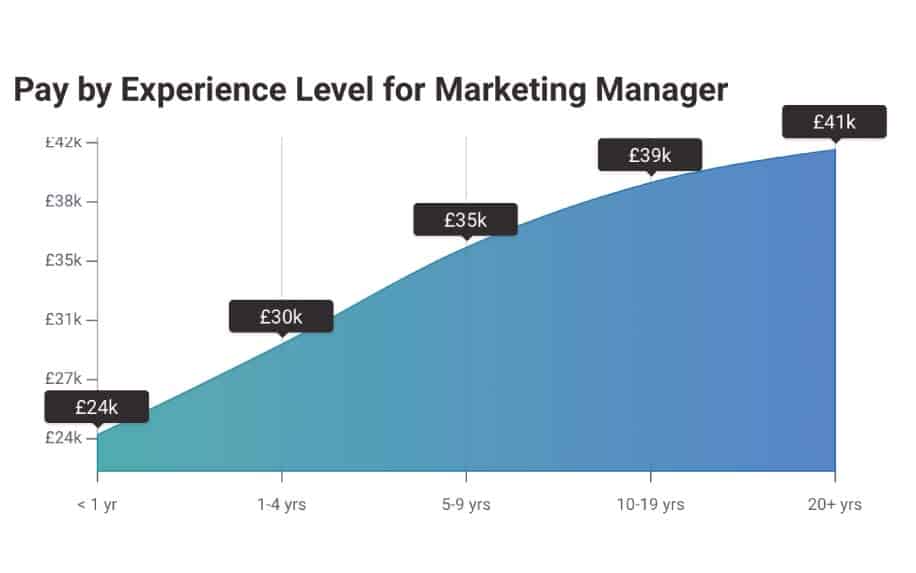
What Kind of Marketing Person Do You Need?
Another problem is that there are more grey areas relating to marketing job titles than really any other function. The digital marketing industry has exploded in recent years, and clear job titles haven’t quite settled down yet.
A quick scan of different job listings for the title Marketing Executive illustrates this.
At one extreme, you’ll find listings for experienced marketing all-rounders, who can report directly to senior leadership. Essentially, these are management-level roles, which help to shape the company’s bottom line.
At the other extreme, you’ll find ads looking for a student to come in a few days a week to do some admin and run the company Facebook page.
Unfortunately, you’ll also often find ads which want the responsibilities of the former, on the salary of the latter. Worryingly, reputable recruitment agencies are often guilty of this.
The thing is, many marketing professionals are highly specialised. This means that it can be difficult to find a single person who is truly an expert on all kinds of marketing, such as email, social, SEO and UX.
As such, it’s vital to factor your specific needs into your budget.
How to Hire a Marketing Person
While the lines between digital marketing and marketing are now almost non-existent, the specialism of your marketer can be very specific.
Some have studied marketing theory without much digital experience and vice versa. There are those who are geared towards data, content, design or brand. They might specialise in traditional PR and partnership-building marketing.
How do you hire a marketer? By taking time to understand the difference. And employ the marketer you need.
Must-Have Marketing Skills to Look for When Hiring:
1. Digital Marketing Expertise:
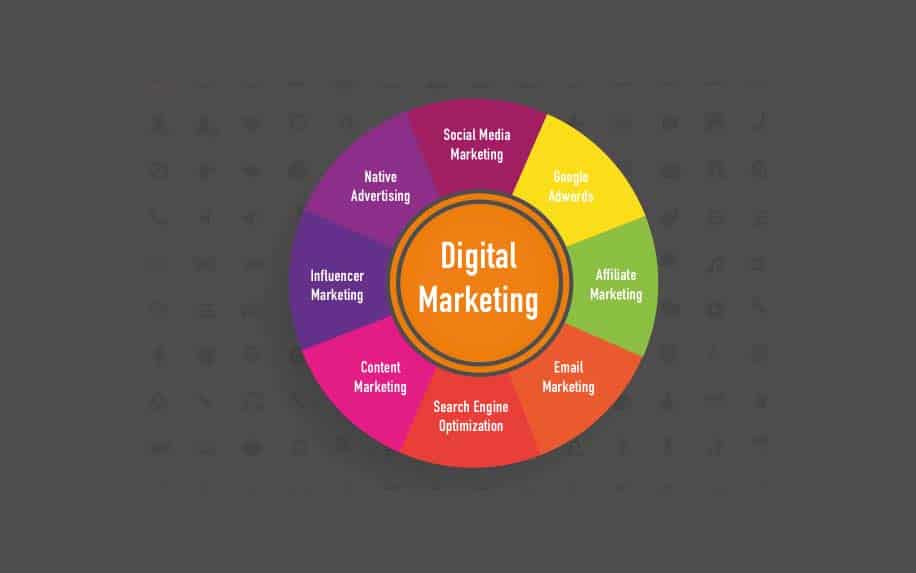
- Search Engine Optimization (SEO): Understanding keyword research, on-page optimization, and link building strategies.
- Pay-Per-Click (PPC) Advertising: Managing Google Ads, Facebook Ads, and other platforms to generate targeted leads.
- Social Media Marketing: Creating engaging content, managing social media campaigns, and building communities.
- Email Marketing: Crafting compelling email campaigns, segmenting audiences, and analyzing performance.
- Content Marketing: Writing blog posts, creating infographics and videos, and developing effective content distribution strategies.
- Analytics & Reporting: Measuring marketing campaign performance and using data to inform future decisions.
2. Communication & Collaboration:
- Strong written and verbal communication skills: Effectively conveying ideas, crafting compelling copy, and presenting information in a clear and concise way.
- Teamwork and collaboration: Working effectively with internal and external stakeholders, including designers, developers, and other marketing professionals.
- Active listening and empathy: Understanding customer needs and tailoring messaging accordingly.
3. Creativity & Innovation:
- Developing unique and engaging marketing campaigns that stand out from the competition.
- Thinking outside the box and proposing new ideas for improvement.
- Adapting to changing marketing trends and technologies.
4. Business Acumen & Strategy:
- Understanding the company’s business goals and objectives.
- Developing marketing strategies aligned with overall business strategy.
- Measuring the impact of marketing efforts on the bottom line.
- Budgeting and managing marketing expenses effectively.
5. Adaptability & Learning Agility:
- Being able to adapt to new technologies and marketing trends quickly.
- Continuously learning and acquiring new skills.
- Being comfortable working in a fast-paced environment.
Bonus Skills:
- Graphic design: Creating visually appealing marketing materials.
- Video editing: Producing engaging video content.
- Project management: Organizing and managing marketing projects effectively.
- Data analysis: Extracting insights from marketing data.
- Industry knowledge: Understanding the specific challenges and opportunities of your industry.
Note: The specific skills you prioritize will vary depending on your company’s needs and the role you are hiring for. However, these are essential skills for any successful marketing professional.
The ‘Swiss Army Knife’ Marketer?
Looking for someone to do your video work, website development, SEO, design, writing, social media, strategy, analysis, brand and more? Or – or worse – hoping for all this and for your marketer to run the office too?
You might need to rethink your budget and your plan.
Your marketer will, naturally, have strengths and weaknesses. A professional approach to strategy, tactics, execution and assessing results will need investment – of time and money – going forward.
If you’ve decided a marketing person is needed, simply ‘bringing in a graduate’ as a tick-box act won’t bring in the results you need.
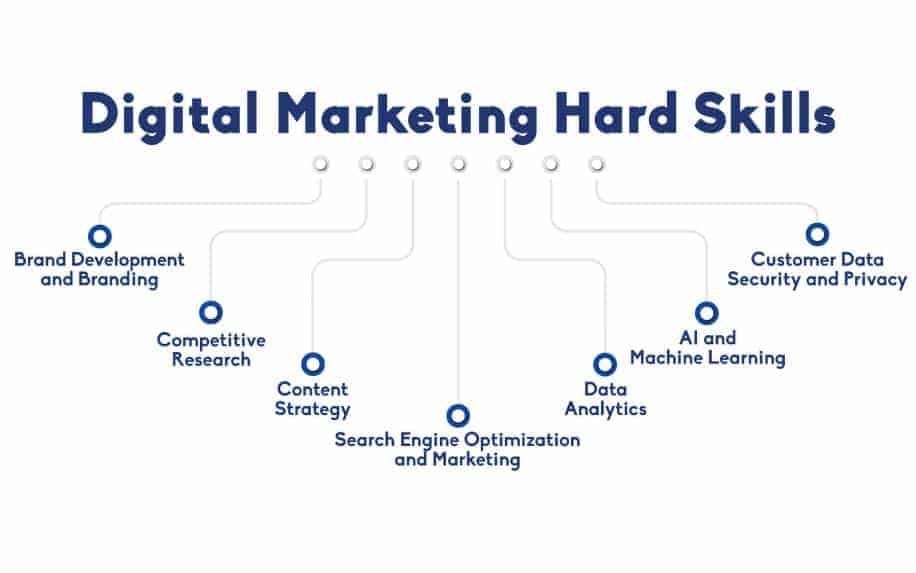
It’s important to be realistic about the fact that most marketers can’t do everything. In fact, many companies with only one marketer still outsource specialised functions to an agency.
Draw a Line and Listen
A common mistake when hiring a marketer happens when businesses don’t give the new team-member a clear remit.
The strategy, segments, social channels, content and more should be, openly and firmly, the ‘territory’ of the new marketing colleague. And everyone in the company should know this. You may need to rein-on others who have had a hand in marketing until now.
Your new marketer is unlikely to give your colleagues advice on sales techniques, your accounting or on administration. The truth should be the same in reverse AND the marketer’s remit should be written in stone.
This also extends to providing clear KPIs and goals for your new marketing hire.
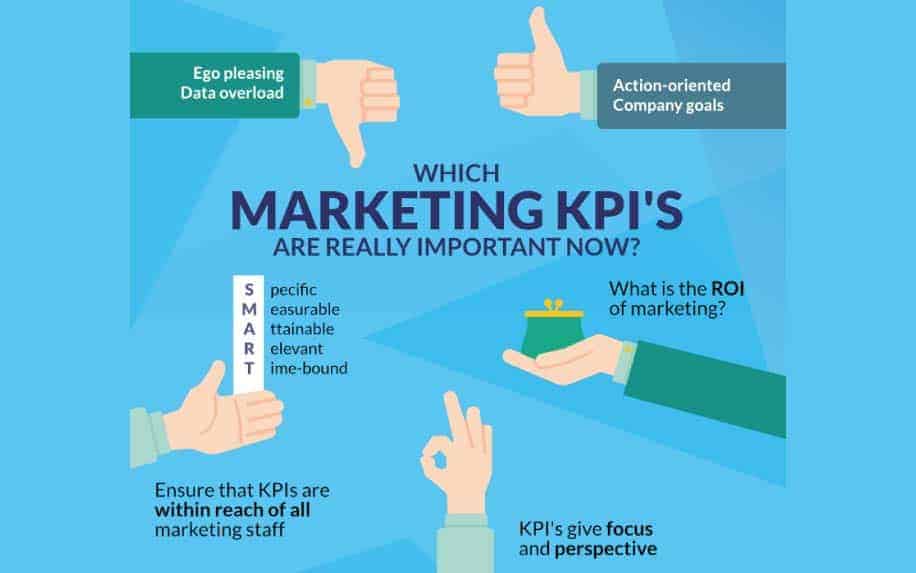
Marketing ≠ Committee-Thinking
Marketing and content ideas need to fit in with strategy and goals, as well as having a clear purpose.
Ideas from the whole team should be encouraged. Fitting these into your marketing aims, brand, schedule and strategy for conversions will be the job of your new marketer.
After all, in an era when marketing talks are common at business events, it can be easy to mistake third-hand advice as absolute wisdom.
Those outside your company know nothing about the context, strategy and goals of your business. Your new marketer will have a better sense of creating a community for your potential buyers in the right way for you.
Don’t make the mistake of having your new colleague derailed by random ideas, hard-sell demands and piecemeal actions with short-term, crowd-pleasing appeal.
Hide the Log-ins
Most social media disasters came from too many people posting content, without proper coordination. Social posts can go viral for all the wrong reasons, hurting both your reputation and your revenue.
At the very least, your social media guidelines should be strongly promoted and kept updated.
For a small company your social channels should be the domain of your marketer and your marketer alone.
Patchy content, or off-brand and even potentially unwise posts, can often be the result of ‘too many cooks’. Having one person responsible for your social content reduces the level of risk for your business.
Your Buy-In is An Investment
The question ‘how do you hire a marketer’ is, as you can see, only part of the story.
A vital tip? Buy into their work and show your team that it holds an important place in the business.
Showing, from the top, that marketing runs at the core of strategy and everyday life for the business is an investment in results.
Otherwise, you’re going to need to hire a marketer to replace them within a couple of years.
And continue the investment
Your marketer will need a budget for software, tools, collateral, online advertising and more.
A professional customer journey – including high-quality content, a landing page, a website to the latest standards and more – are all needed for marketing to work well. And for conversions to happen.
When you start to think ‘marketing person needed’, bear in mind an ongoing budget will be needed too. Your new marketer will help draw up a budget to match your marketing strategy.
Innovation as a Minimum
Hiring a marketing professional means you have the means to keep ahead of things like VR, augmented reality, voice search and more. Outside help may be needed but the budget will be spent.
That’s because your potential customers can and will change how they look for your business, what they expect to see from you online and the devices they use too.
An investment in keeping on top of change, working closely with your new marketer, will mean surpassing customer expectations.
Meanwhile, your competitors will be reacting to change instead of planning for change.
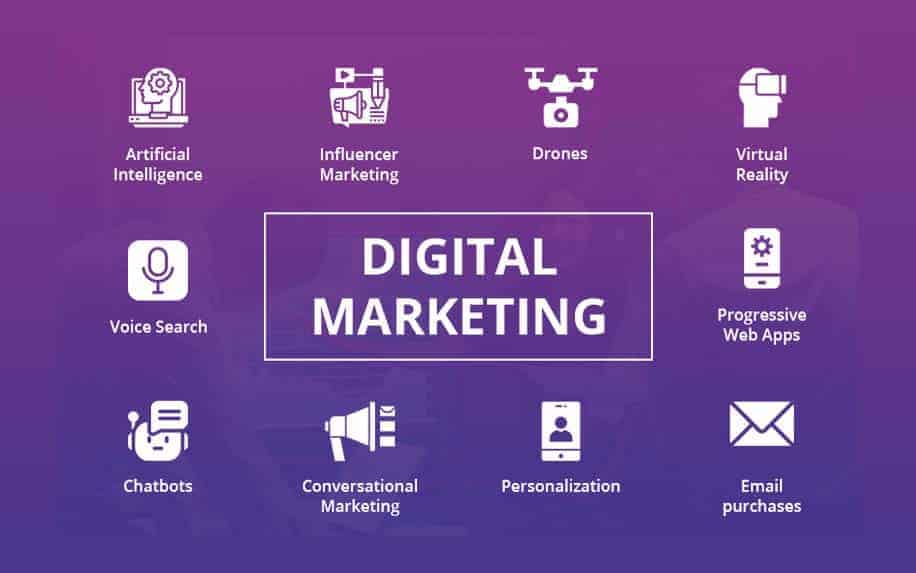
Latest Data on Marketing Salaries and Job Growth:
Marketing Salaries:
- Median annual wage for marketing managers: $135,960 (Bureau of Labor Statistics, May 2023)
- Salary range for digital marketing professionals: $42,000 – $165,000 (Payscale, 2023)
- The average salary for growth marketers: $112,258 (Indeed, 2023)
- The salary range for content marketing specialists: $40,000 – $100,000 (Glassdoor, 2023)
- Salary range for social media managers: $50,000 – $120,000 (ZipRecruiter, 2023)
Marketing Job Growth:
- Overall employment for marketing managers is expected to grow 8% from 2022 to 2032, faster than the average for all occupations. (Bureau of Labor Statistics, May 2023)
- Job growth for digital marketing specialists is expected to be much higher than average, at 21% from 2022 to 2032. (Bureau of Labor Statistics, May 2023)
- The demand for content marketing specialists is expected to grow 16% from 2022 to 2032, faster than the average for all occupations. (Bureau of Labor Statistics, May 2023)
- The job market for social media managers is expected to grow 10% from 2022 to 2032, faster than the average for all occupations. (Bureau of Labor Statistics, May 2023)
Additional Data Points:
- The demand for marketing professionals with specialized skills, such as data analysis and marketing automation, is growing rapidly. (Indeed, 2023)
- Remote work opportunities are becoming increasingly common in the marketing field. (FlexJobs, 2023)
- The marketing industry is becoming increasingly diverse and inclusive. (LinkedIn Talent Solutions, 2023)
It’s important to note that these are national averages, and salaries and job growth may vary depending on location, industry, and experience.
Sourcing, Vetting, Interviewing Candidates:
Sourcing of Digital Marketing Roles:
- Job Boards & Online Platforms: Utilize platforms like LinkedIn, Indeed, and Glassdoor to post job openings and attract potential candidates.
- Employee Referrals: Encourage current employees to refer qualified candidates within their networks.
- Professional Associations & Networking Events: Build relationships with marketing professionals through industry events and conferences.
- University Recruiting Programs: Partner with universities to connect with talented marketing graduates.
- Social Media Recruitment: Utilize social media platforms like LinkedIn and Twitter to reach a wider audience of potential candidates.
Vetting of Digital Marketing Roles:
- Review Resumes & Cover Letters: Screen resumes and cover letters to identify candidates with the necessary skills and experience.
- Conduct Pre-screening Interviews: Hold brief phone or video interviews to assess cultural fit and communication skills.
- Review References: Contact references to verify information and gather feedback on the candidate’s work ethic and performance.
- Conduct Skills Tests: Utilize online assessments to evaluate specific digital marketing skills like SEO, PPC, and analytics.
Interviewing of Digital Marketing Roles:
- Develop Structured Interview Questions: Focus on the specific skills and experience required for the role.
- Utilize Behavioral Interviewing Techniques: Ask questions about past experiences to assess how the candidate has handled similar situations.
- Conduct Scenario-Based Interviews: Present real-life marketing challenges to assess the candidate’s problem-solving skills and decision-making abilities.
- Assign Take-Home Assignments: Provide practical tasks related to the job duties to evaluate the candidate’s skills and work ethic.
- Allow Time for Candidate Questions: Encourage the candidate to ask questions about the role and company culture.
Profiles of Digital Marketing Roles:
- Marketing Manager: Oversees the entire marketing function, developing and implementing marketing strategies, managing budgets, and leading a team of marketing professionals.
- Digital Marketing Specialist: Executes specific digital marketing campaigns, such as SEO, PPC, social media, and content marketing.
- Content Marketing Specialist: Creates and distributes valuable content to attract and engage target audiences.
- Social Media Manager: Develops and implements social media strategies, manages social media accounts, and interacts with followers.
- Email Marketing Specialist: Creates and manages email campaigns, segments audiences, and analyzes performance.
- SEO Specialist: Optimizes websites and web content to improve organic search ranking.
- PPC Specialist: Manages paid advertising campaigns on platforms like Google Ads and Facebook Ads.
- Analytics & Reporting Specialist: Collects and analyzes marketing data to measure campaign performance and provide insights.
Quotes from Marketing Recruiters:
“In today’s competitive market, it’s crucial to find marketing professionals with a strong mix of technical skills, creativity, and critical thinking.” – Sarah Jones, Marketing Recruiter at TechSurge
“Data-driven decision-making is essential for success in the marketing field. Look for candidates who are comfortable working with data and using it to inform their strategies.” – David Smith, Marketing Recruiter at The Fashionista
“Soft skills, such as communication, collaboration, and adaptability, are just as important as technical skills in today’s marketing landscape.” – Amanda Brown, Marketing Recruiter at ProfileTree
Checklist for Evaluating Applicant Experience:
- Clearly defined career goals and aspirations.
- Demonstration of relevant skills and experience.
- A strong track record of success in previous roles.
- Passion and enthusiasm for the marketing field.
- Excellent communication and interpersonal skills.
- Strong analytical and problem-solving abilities.
- Adaptability and willingness to learn new things.
- A team player with a collaborative spirit.
Need Help? Just Ask
As we’ve said, the ‘Swiss Army Knife’ marketer doesn’t exist.
If professional help with strategy, SEO, content or analysis will help win better outcomes for your business, it’s a worthwhile investment.
First, if you need to know ‘what can a marketing company do for me?’ examine their previous work and look for the right fit for your business.
Hiring a Marketing Person: Bottom Line
Many businesses start thinking about hiring a marketing person, when they simply don’t need to. The issue here is that many businesses don’t actually have a clear idea of their marketing needs.
This includes whether you actually need a full time marketer, as well as whether you can afford this.
Hiring A Marketing Person FAQs:
Q: How long does it typically take to hire a marketing professional?
A: The time it takes to hire a marketing professional can vary depending on the role, the company, and the current market conditions. However, on average, it can take anywhere from 2 to 4 months to complete the entire hiring process.
Q: What are some red flags to watch out for during the interview process?
A: Some red flags to watch out for during the interview process include:
- Lack of preparation or research about the company or the role.
- Negative attitude or poor communication skills.
- Unrealistic salary expectations.
- Overinflated accomplishments or a history of job hopping.
- Dishonesty or lack of integrity.
Q: What are the benefits of working with a marketing recruitment agency?
A: Working with a marketing recruitment agency can offer several benefits, including:
- Access to a wider pool of qualified candidates.
- Expertise in the marketing industry and specific roles.
- Time-saving assistance with screening and interviewing candidates.
- Guidance on salary benchmarking and negotiation.
- Support with onboarding and integrating new hires.
Q: What are some common hiring mistakes to avoid?
A: Some common hiring mistakes to avoid include:
- Making decisions based solely on resumes or cover letters.
- Failing to define clear job requirements and expectations.
- Not conducting proper reference checks.
- Rushing the interview process.
- Making hiring decisions based on personal biases.
Hiring A Marketing Person Conclusion:
Hiring the right marketing professional can have a significant impact on your business success. By following the steps outlined in this article and considering the factors discussed, you can increase your chances of finding a talented and qualified candidate who will contribute to your team’s long-term growth. Remember, the key is to be thorough, strategic, and focused on finding the best fit for your unique needs and company culture.
The truth is that for most small to medium sized businesses, outsourcing campaigns to a marketing agency will be much more cost effective. Contact our team to discuss your specific needs.


